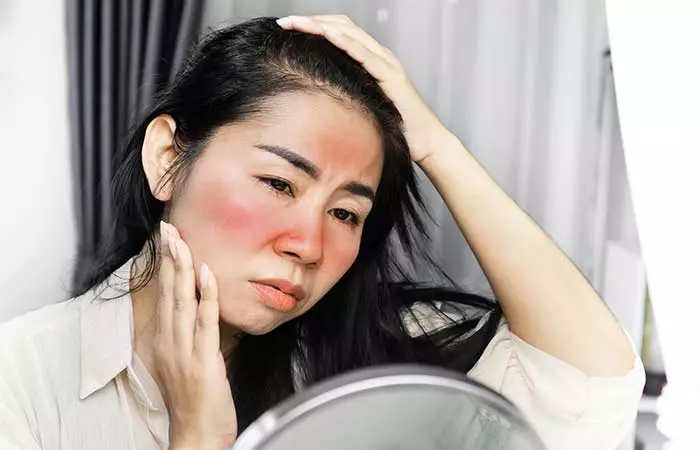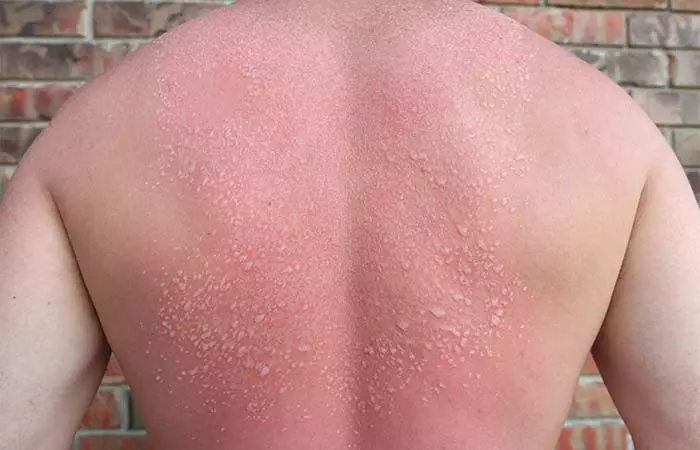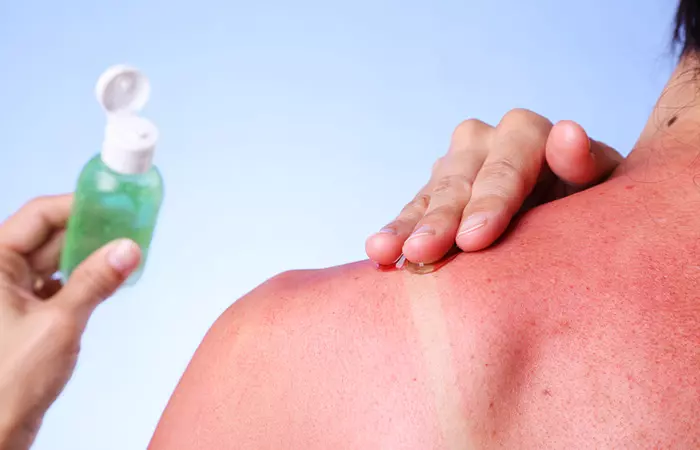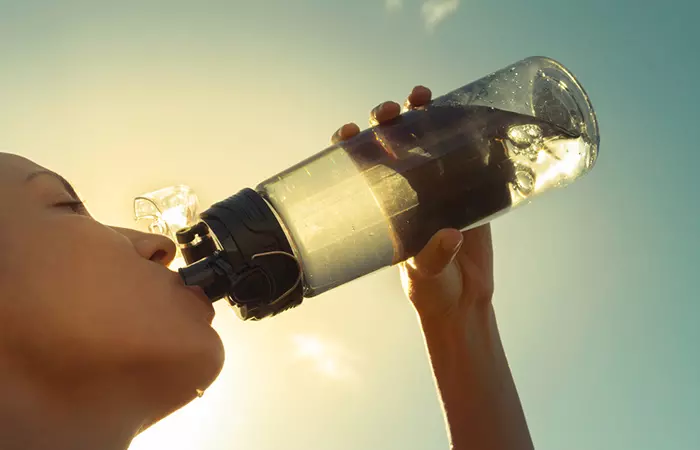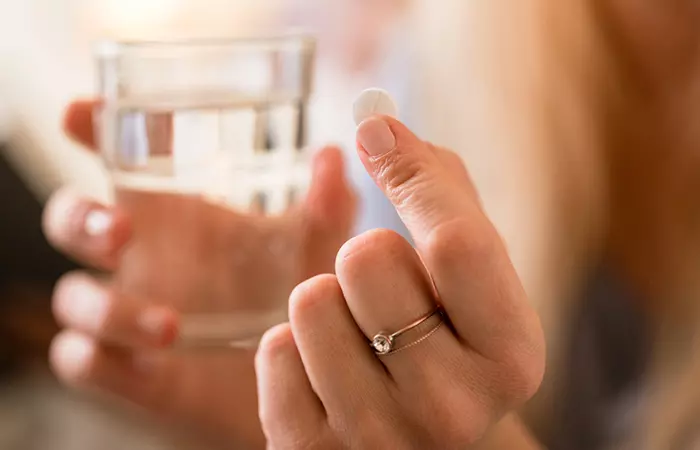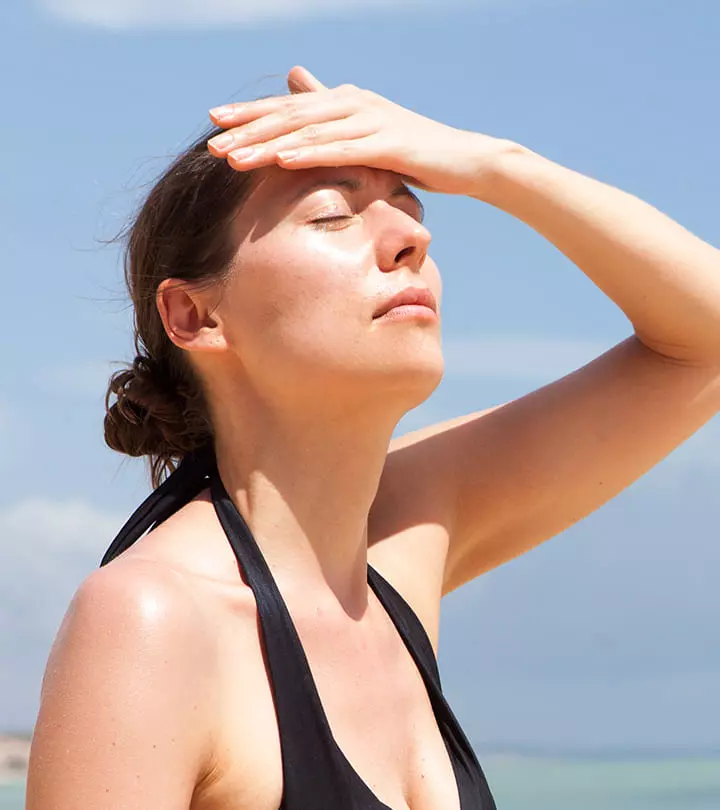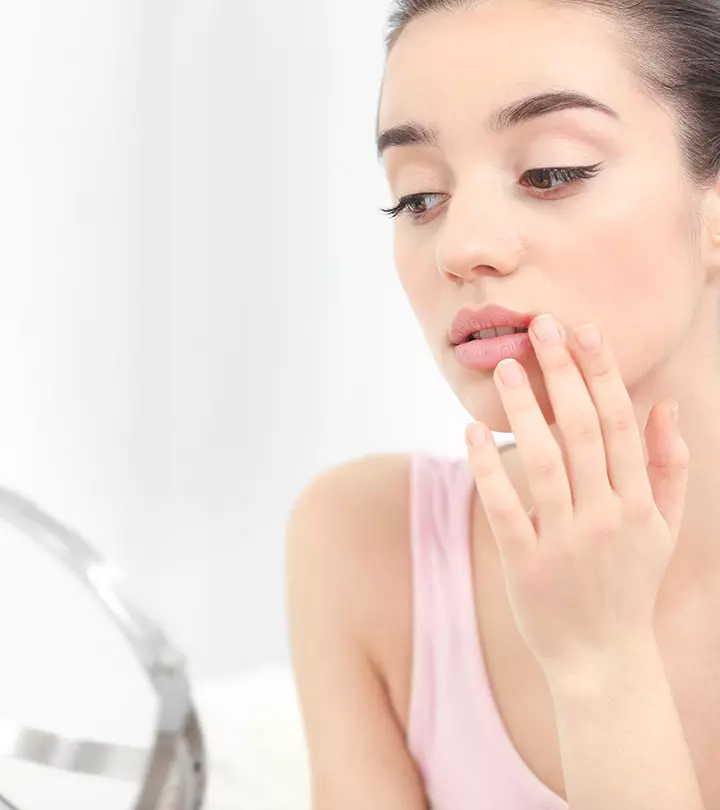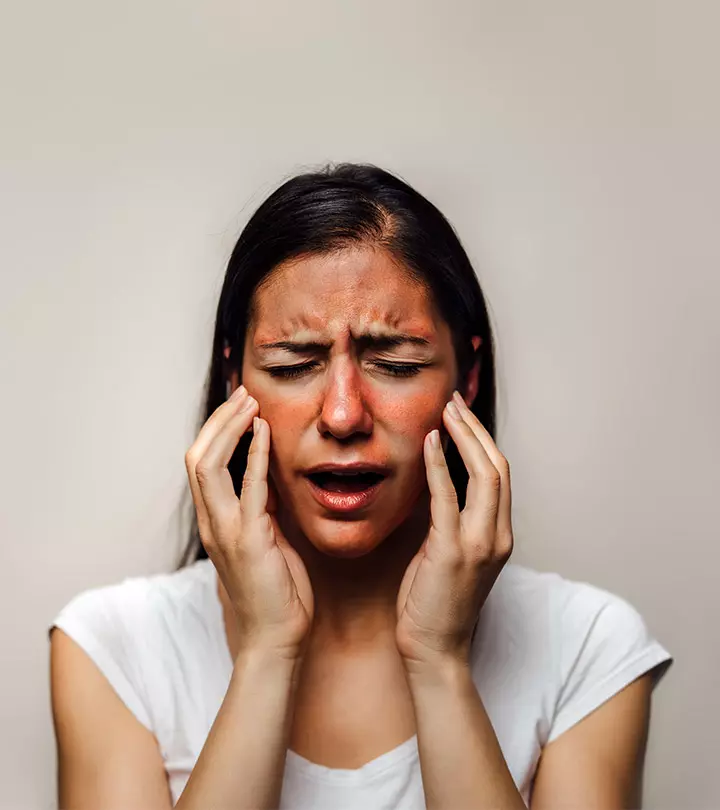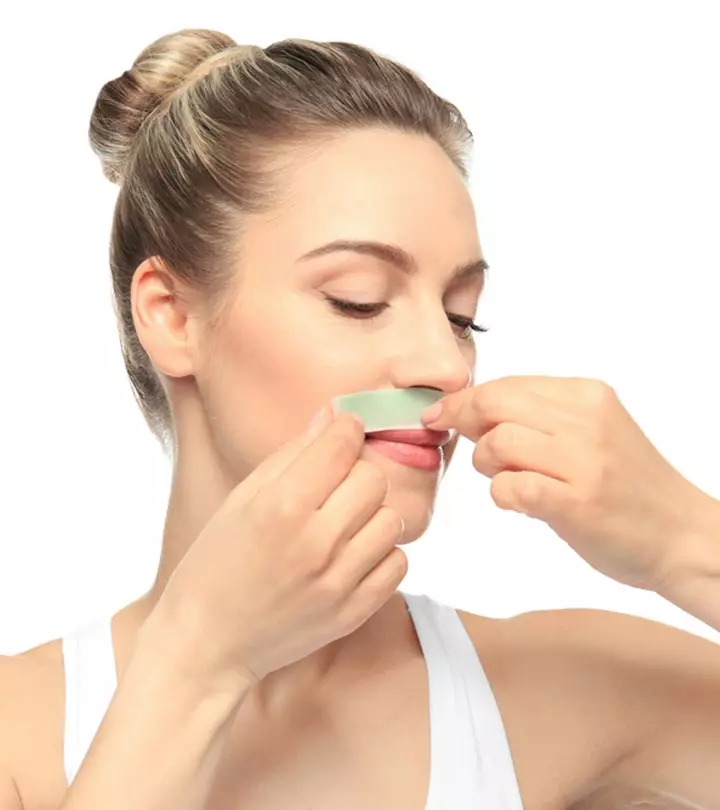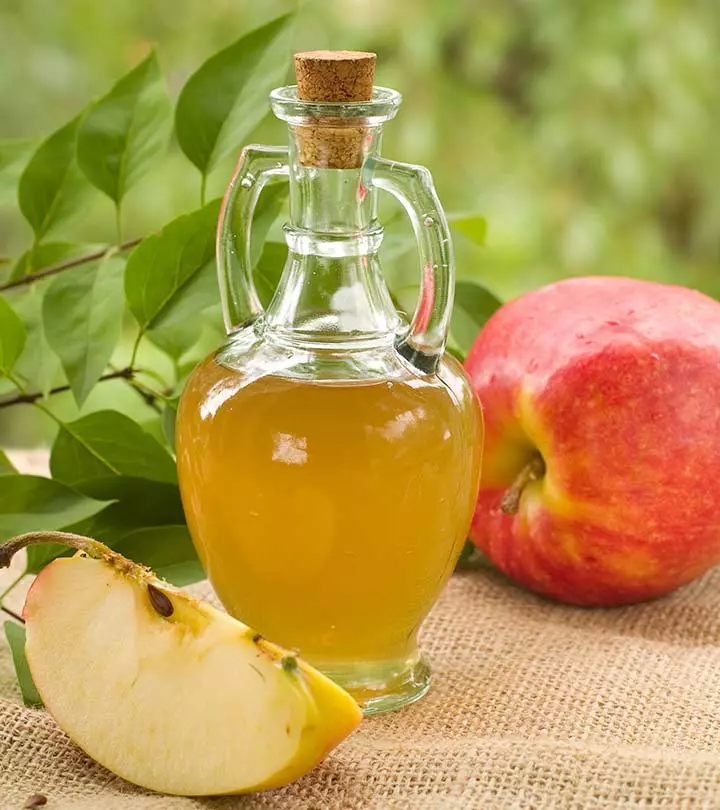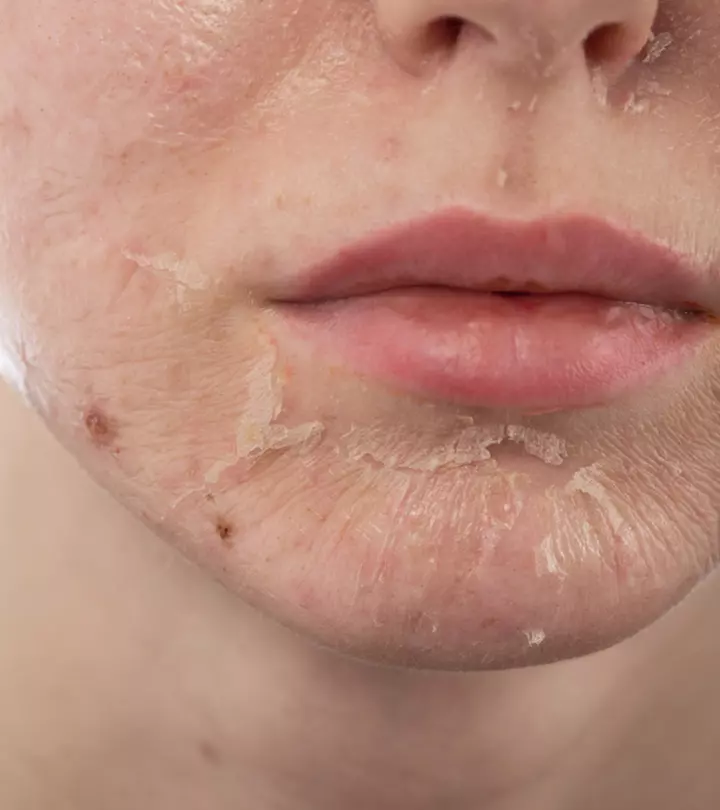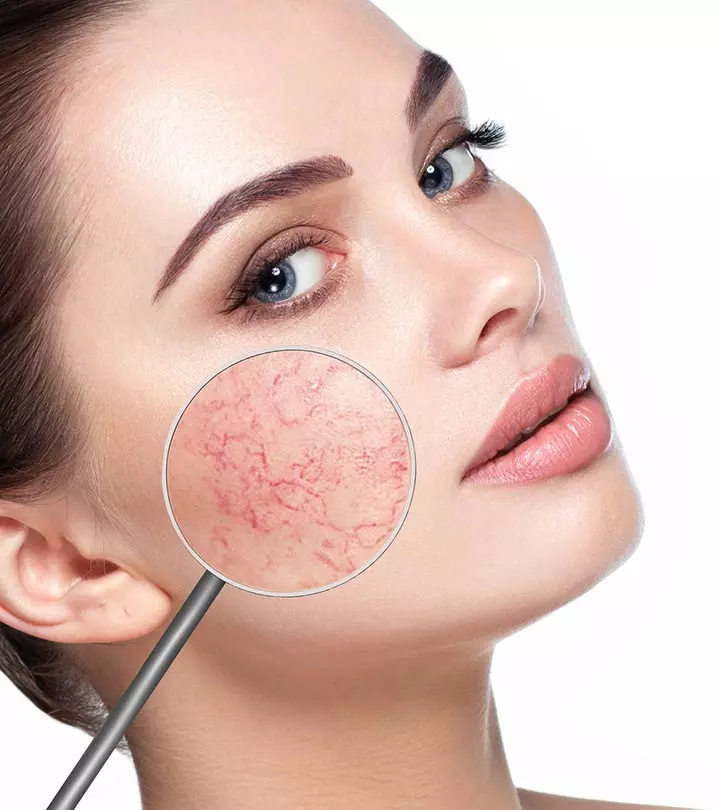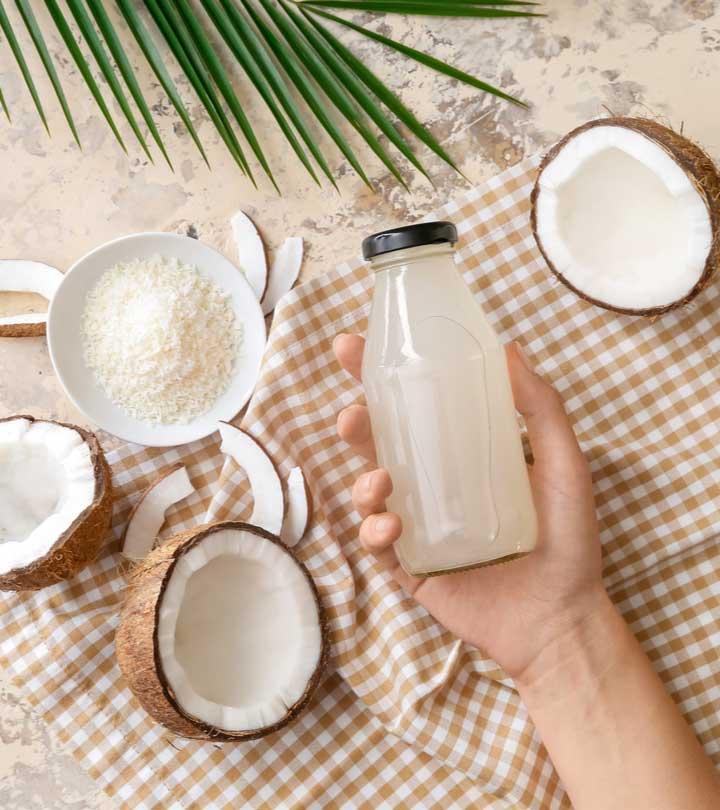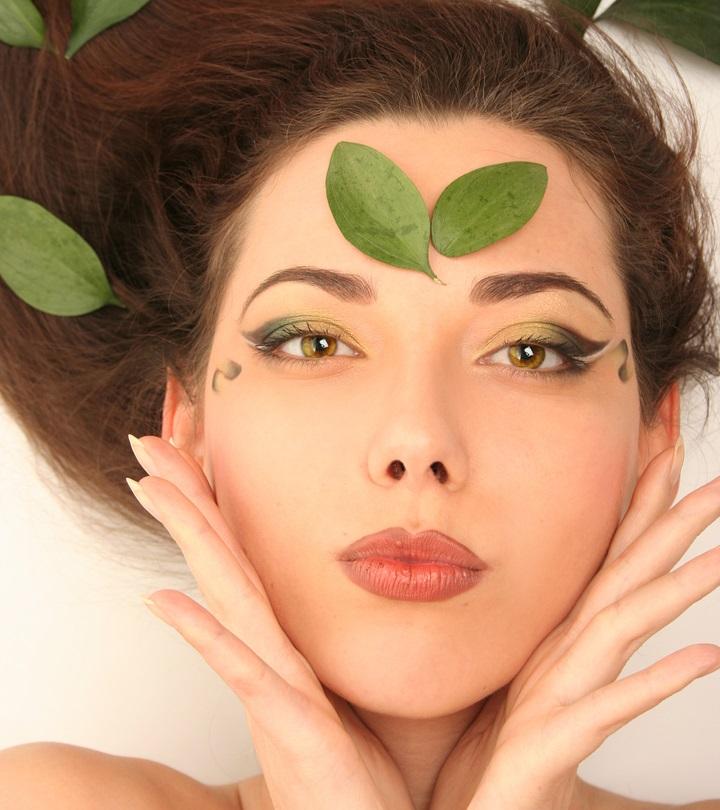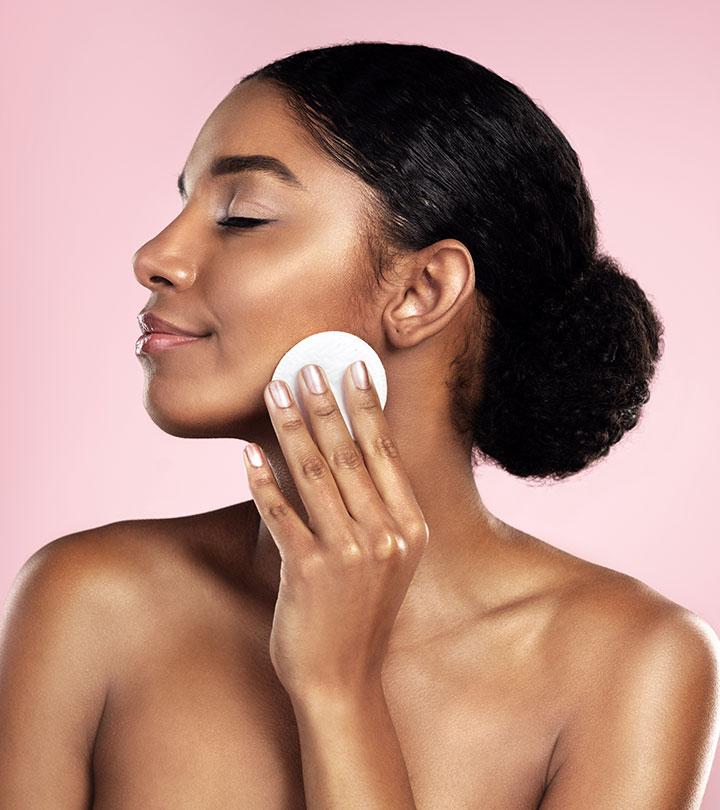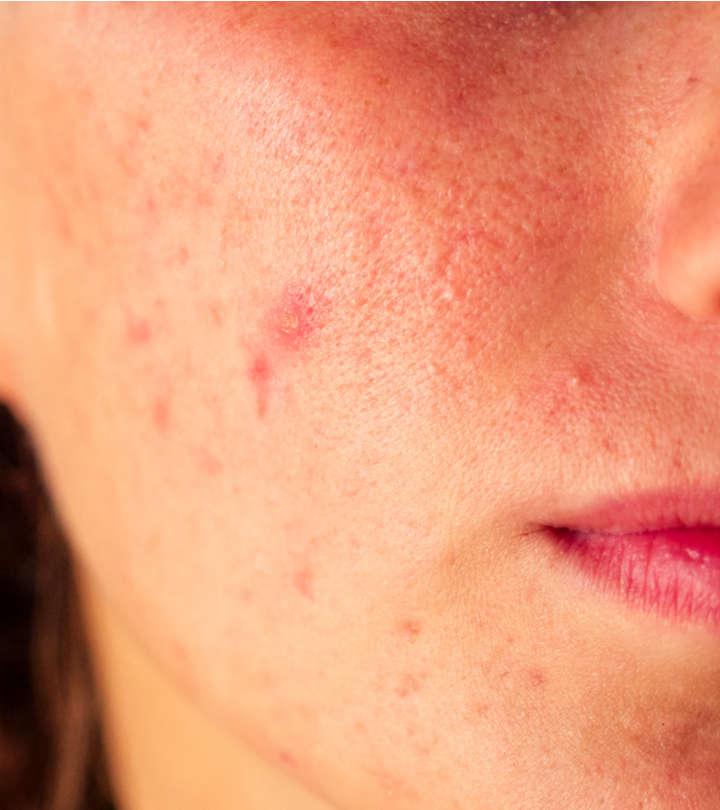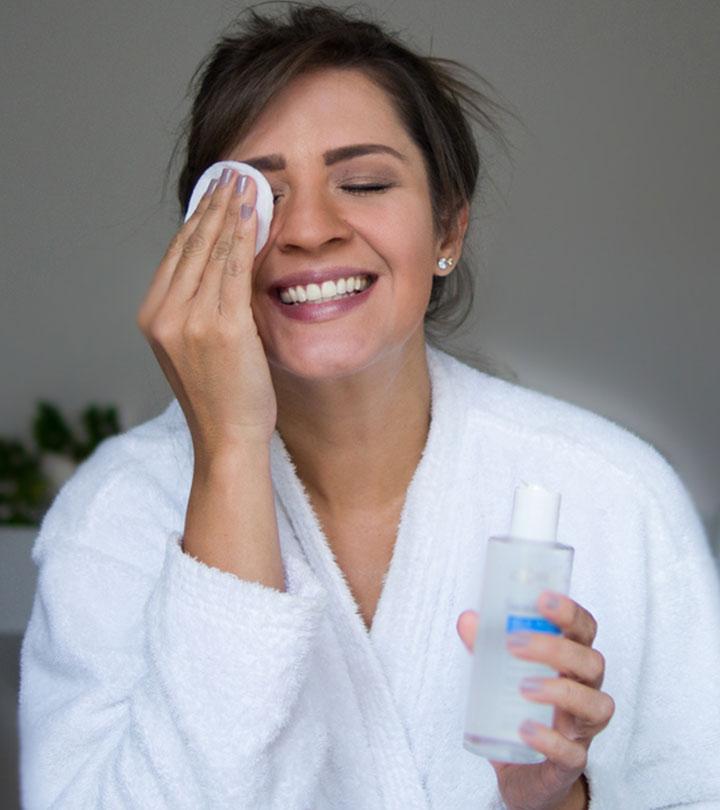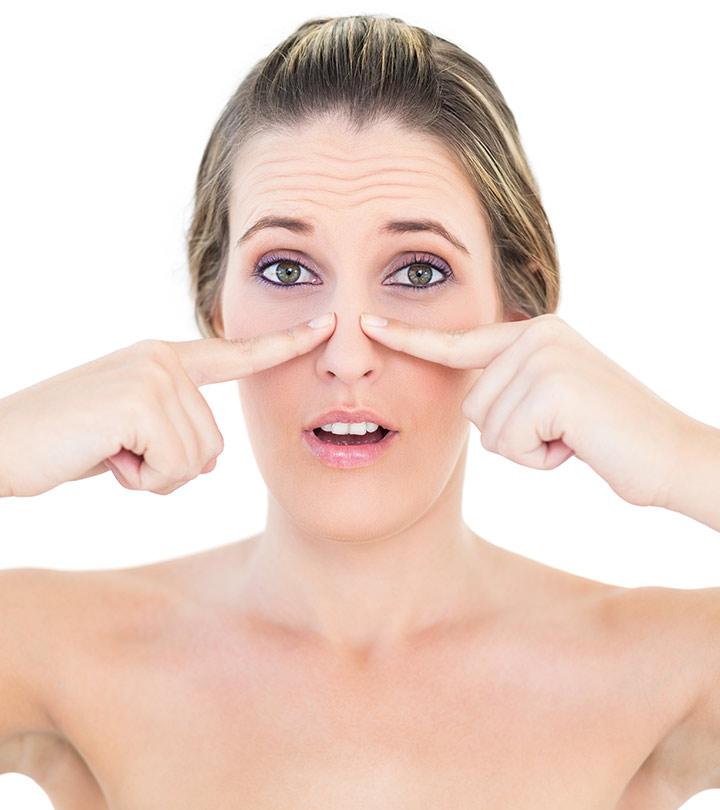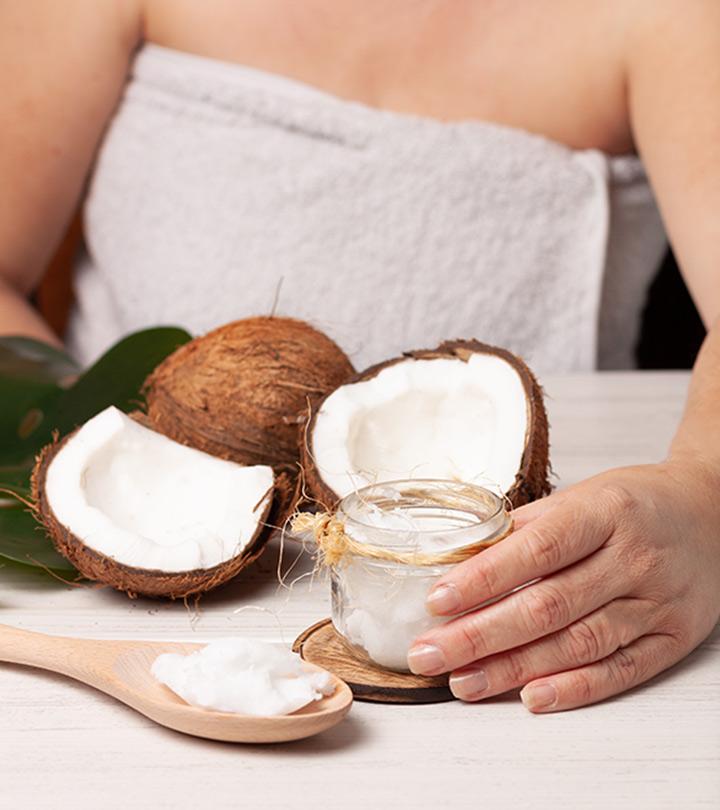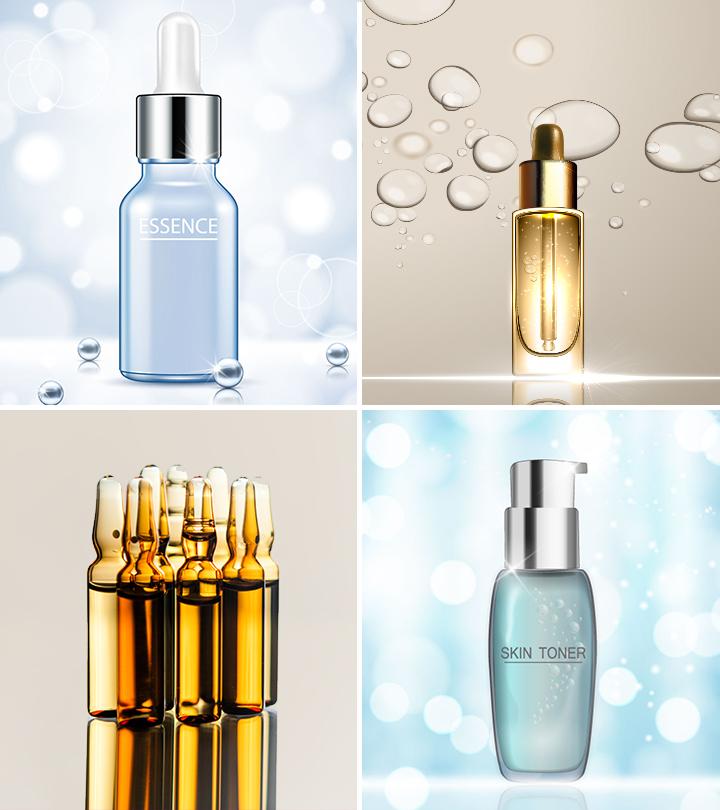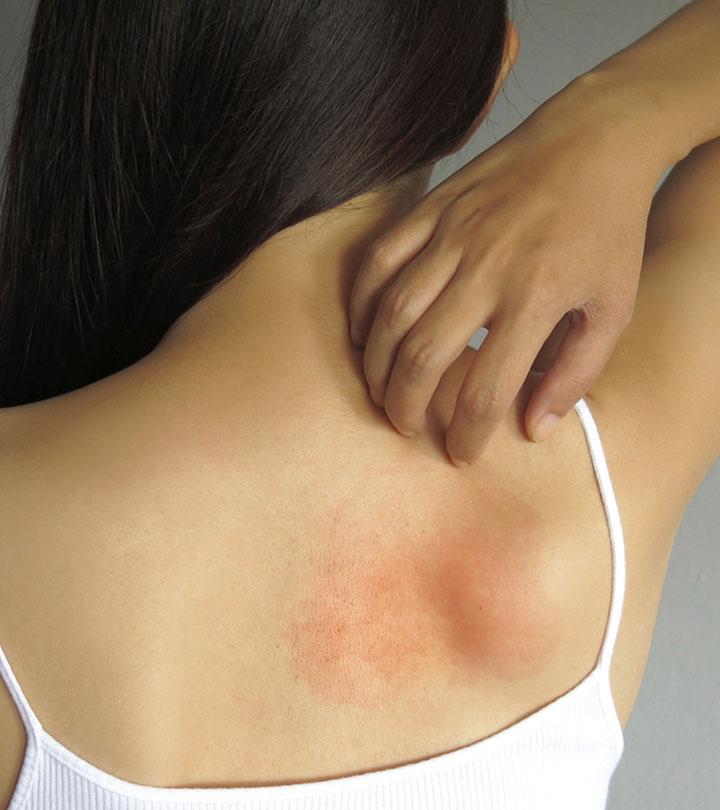Sunburn Vs. Sun Poisoning: Symptoms, Remedies, & Prevention
Learn the exact differences between the two to know when to seek medical attention.

Image: Shutterstock
Almost everyone has experienced the pain caused by sunburn. However, ever wondered about the difference between sunburn and sun poisoning?
Excessive sun exposure can cause redness, peeling, irritation, and pain, leading to sunburn. However, sunburn is often confused with sun poisoning, a serious medical condition. This article explains the differences between sunburn and sun poisoning, risk factors, remedies, and prevention tips. Continue reading to learn more.
In This Article
What Is Sunburn?
A sunburn is your body’s natural inflammatory response to the sun’s ultraviolet (UV) radiation damaging your skin’s outer layer. This form of damage is more likely to occur when your skin is exposed to the sun for extensive periods.
In a survey conducted with over 1000 US adults, 62% of the participants graded themselves to be mindful of sun protection, but 63% still got a tan. It found that 67% incorrectly believe that SPF 30 sunscreen offers twice as much protection as SPF 15 sunscreen, while 65% often forget to reapply sunscreen. This puts into perspective why 33% or one-third of respondents reported getting a sunburn.
 Did You Know?
Did You Know?Extreme sunburn may lead to sun poisoning, which can cause symptoms like severe blistering and peeling and dizziness. Let’s understand in detail.
What Is Sun Poisoning?
Sun poisoning is a severe sunburn that can develop after extended UV exposure and inadequate sun protection. While mild sunburn usually heals in about one week, sun poisoning is a more serious complication that can take several weeks to heal, depending on the severity of the damage to your skin. As a result, sun poisoning can be considered an allergic reaction to excessive UV exposure. The next section explains the key differences between the two conditions.
Sunburn Vs. Sun Poisoning: Key Differences
Daniel Boyer, M.D., Author at Farr Institute, explains, Sunburn causes irritation or redness on your skin when exposed to the sun for shorter periods, while sun poisoning is the skin’s allergic reactions that are severe due to exposure to the sun for a longer period. In addition, the skin’s level of damage due to sunburn may depend on the location, duration of exposure, and the skin type, while sun poisoning tends to cause severe symptoms irrespective of those factors when you expose your skin to the intense sun for long.”
You can check the symptoms to determine whether it is a sunburn or sun poisoning.
Symptoms
Sunburn
- Redness
- Swelling
- Itching
- Tenderness
- Skin that is warm to the touch
Sun Poisoning
- Itchy red rash
- Blistering
- Skin peeling
- Dehydration
- Headache or dizziness
- Fever or chills
- Nausea
- Joint pain
- Muscle aches
 Quick Tip
Quick TipSome people are at a greater risk of sunburn and sun poisoning. Knowing the risk factors may help you take preventive measures. Scroll down to check them out.
Risk Factors
You are more likely to burn in the sun if you:
- Have light or fair skin
- Live near the equator or at high altitudes
- Work outdoors
- Swim or wet your skin with water, as wet skin burns faster than dry skin
- Drink alcohol while outdoors in the heat
- Do not use sun protection
- Have medical conditions like lupusi A chronic condition where the immune system attacks its own tissues, which affects the lungs, joints, and other vital organs. , eczemai A chronic skin condition characterized by redness, itchiness, and dry skin and is commonly diagnosed in children. , and rosaceai A common skin condition characterized by red, pus-filled bumps or visible blood vessels on the face.
- Take antibiotics, birth control pills, or acne medications
Dr. Boyer adds, “Sunburns are caused when sensitive skin is exposed to the sun for a shorter period while sun poisoning is a result of exposure of the skin to UV rays for longer periods irrespective of the skin type.”
Several home treatments can help you soothe the symptoms of sunburn and sun poisoning. Read the next section to find out.
Natural Remedies To Try
1. Apply Aloe Vera Gel
Aloe vera is known for its burn-healing abilities, making it a good choice for treating sunburn blisters. Its anti-inflammatory characteristics aid in alleviating pain and inflammation caused by burns and wounds (1).
Aloe vera gel can soothe and moisturize the skin and increase collageni A protein found in the connective tissues, bones, cartilage, and skin that provides structure and support to the skin. formation (1). Make sure to leave the blisters intact, as rupturing them can make them more prone to infections.
Jenna, a YouTuber, talks about her experience of getting sunburn and how she treated it using aloe vera. She sliced aloe vera and used a cube of it to rub aloe vera gel on the sunburnt area. She shares her satisfaction with the results, “I highly recommend it, as it is so good, soothing, and easy to get. Well, I am happy I did this, I felt better in a day (i)!”
2. Try Cold Compress And Cold Showers
Using a cold compress or taking a cool shower or bath will not guarantee that the peeling will subside. However, the cool temperatures may provide temporary relief if the affected area feels warm, inflamed, and causes discomfort.
In case you do not have a cool pack or cool compress at hand, you can make one at home by filling a thick plastic bag with ice cubes. However, never use ice directly on sunburned skin since the extreme cold may cause further harm to the skin, worsening peeling and delaying the healing process.
3. Stay Hydrated
You must let your skin heal from within. Nothing is more beneficial to your skin than a big glass of water. Staying hydrated is essential for healthy skin. Water becomes even more necessary when your skin is damaged due to sunburn. In addition to water, coconut water is a good alternative especially with sunburn, since it will help replete the electrolytes as well.
4. Take An Oatmeal Bath
Colloidal oatmeal contains anti-inflammatory qualities that can help to relieve burns, swelling, itching, and other skin conditions (2). It also aids the skin’s ability to retain moisture, promoting healing. Colloidal oatmeal is not the same as breakfast oatmeal. Whole oats are used to make colloidal oatmeal. Grind uncooked whole oats in a food processor into a fine powder. Mix a cup of oatmeal powder in a tub of room temperature water and soak in it for 10-15 minutes.
5. Treat The Blisters
Treat the affected area gently with soap and water if a blister pops open. Then, apply antiseptic ointment and cover the exposed skin with non-stick gauze or a bandage. If a rash develops or the symptoms worsen, consult your doctor immediately.
You can also try home remedies to soothe sunburn. There isn’t much scientific evidence to support any home or natural sunburn remedies. However, most home or natural remedies are safe unless you are allergic to the ingredients. You may try:
- Using baking soda in a cool bath
- Applying honey to the affected area
6. Take Anti-Inflammatory Medicine
Aspirin or ibuprofen are non-steroidal anti-inflammatory drugs that can calm the skin and reduce the pain associated with sunburn.
You can either take medication or break aspirin or ibuprofen tablets and combine them with water to make a paste that you can gently apply to the affected area. Anti-inflammatory creams are also available. Avoid petroleum or oil-based lotions, just as you should avoid moisturizers.
You can also try home remedies to soothe sunburn. There isn’t much scientific evidence to support any home or natural sunburn remedies. However, most home or natural remedies are safe unless you are allergic to the ingredients. You may try:
- Applying menthol shaving cream to the skin
- Using baking soda in a cool bath
- Applying honey to the affected area
Sometimes the burns may be severe, and natural remedies may not be enough to treat them. In such cases, it is best to seek medical treatment. Learn more about the available treatment options in the next section.
Medical Treatments For Sun Poisoning
While mild sunburns can be relieved with natural cooling remedies and non-prescription medication, sun poisoning may require stronger treatment methods depending on its severity. The following treatments are ideal:
- Prescription medication if OTC products are ineffective.
- Topical antibiotics to prevent infections in the affected area.
- Topical steroid ointments to soothe painful blisters.
- Oral steroids to ease pain and swelling.
- Intravenous fluids (IV) to restore hydration.
Be in touch with a healthcare provider to monitor the symptoms. Sun poisoning can heal gradually with proper and gentle care. But severe cases of sun poisoning may require hospital admission for round-the-clock observation. However, it does not have to come to that if you follow some simple precautions when outdoors. Keep reading to learn more.
How To Prevent Sunburn And Sun Poisoning
- Stay out of the sun as much as possible.
- While going out, wear protective clothing like hats and long-sleeved garments.
- Apply sunscreen with an SPF of 35+ 15 to 30 minutes before going outside and then reapply every two hours.
- Certain medications may make your skin sun-sensitive. Be mindful of that.
- Drink plenty of water to prevent dehydration.
- Keep infants out of direct sunlight.
- Do not use tanning beds.
If the sunburn symptoms are severe or linger for a long time, you should seek medical advice. Since the symptoms of sun poisoning are severe, you must visit a doctor and start treatment immediately.
When To See A Doctor
The majority of cases of sun poisoning will improve with time and self-care. In some cases, though, seeing a doctor is advised.
It is recommended that you seek medical assistance if the affected area is extensive. Even if the sun poisoning is minor, obtaining medical advice helps ensure that it is effectively managed. This can help avoid complications and alleviate symptoms quickly.
Infographic: Best Natural Remedies To Treat Sunburns
Summers bring along a host of skin issues, the most common being sunburns. Thankfully, the redness, irritation, and pain caused by a sunburn can be treated with some natural ingredients. We have listed a few of them in the below infographic. Check it out for more information.

Illustration: StyleCraze Design Team
To Sum Up
A sunburn is a red, painful, or sore skin caused by unprotected sun exposure and harsh UV radiation. Sun poisoning may initially show sunburn-like symptoms, but it is a severe condition. But don’t be concerned! You can try the remedies and tips discussed in the article to alleviate the symptoms and relieve pain. However, sun poisoning may necessitate medical attention. Both the conditions can raise your chance of extensive skin damage and cancer, so ensure that you protect yourself from UV exposure.
Frequently Asked Questions
Is sun poisoning different from sunburn?
Yes, sun poisoning is more severe than sunburn. It is caused by prolonged UV exposure and may appear like a typical sunburn at first. However, you may soon experience blisters, fevers, nausea, and notice severe heat rash.
How long does it take to get sun poisoning?
The skin may get sunburned within 15 minutes. Further exposure to sun rays for a longer period may lead to sun poisoning.
Why do I get sick when I’m in the sun?
Excessive sun exposure may make you feel sick and cause heat exhaustion and dehydration. You may notice heavy sweating, nausea, dizziness, headache, and a sensation of weakness and fatigue.
Can anti-inflammatory medicine work for sunburn?
Yes, although research is limited. Aspirin or ibuprofen are non-steroidal anti-inflammatory drugs that can calm the skin and reduce the pain associated with sunburn. You can either take medication or break aspirin or ibuprofen tablets and combine them with water to make a paste that you can gently apply to the affected area. Anti-inflammatory creams are also available.
Can you use menthol shaving cream for sunburn?
Yes, applying it on your skin may have a cooling effect. However, the use of other methods is recommended.
Key Takeaways
- A sunburn is an inflammation of the skin because of excessive ultraviolet radiation of the sun on your skin’s outer layer. It can occur due to too much sun exposure.
- Sun poisoning on the other hand is a severe sunburn. It can develop due to an allergic reaction to prolonged UV exposure and can take many weeks to heal.
- You can try homemade treatments like aloe vera gel, cold compress and cold showers, staying hydrated, and taking oatmeal baths.
- To prevent sunburns and sun poisoning, you should wear protective clothing to limit sun exposure, use sunblock, drink plenty of water and seek shade during peak sun hours.
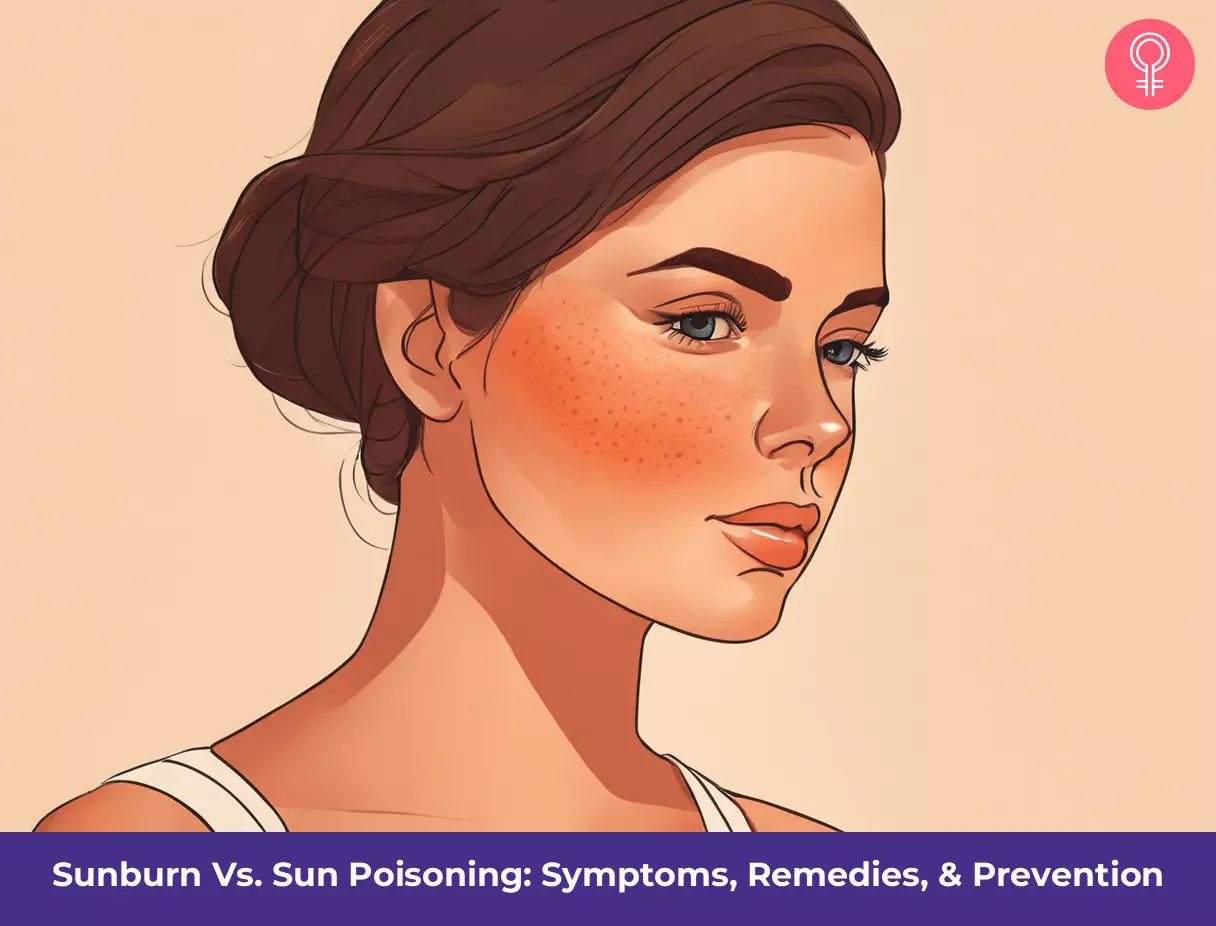
Image: Stable Diffusion/StyleCraze Design Team
Confused about whether you have a sunburn or a sun tan? Watch this video to learn the difference between the two and protect your skin from the sun’s harmful rays.
Personal Experience: Source
StyleCraze's articles are interwoven with authentic personal narratives that provide depth and resonance to our content. Below are the sources of the personal accounts referenced in this article.
i. How To Use Aloe Vera Plant For Sunburn Reliefhttps://www.youtube.com/watch?v=ZQDMxgo2FxM
References
Articles on StyleCraze are backed by verified information from peer-reviewed and academic research papers, reputed organizations, research institutions, and medical associations to ensure accuracy and relevance. Read our editorial policy to learn more.
- The Effect of Aloe Vera Clinical Trials on Prevention and Healing of Skin Wound: A Systematic Review
https://www.ncbi.nlm.nih.gov/pmc/articles/PMC6330525/ - Anti-inflammatory activities of colloidal oatmeal (Avena sativa) contribute to the effectiveness of oats in treatment of itch associated with dry irritated skin
https://pubmed.ncbi.nlm.nih.gov/25607907/ - Sunburn
https://progressreport.cancer.gov/prevention/sunburn
Read full bio of Dr. Sanober Pezad Doctor
Read full bio of Anjali Sayee
Read full bio of Swathi E





